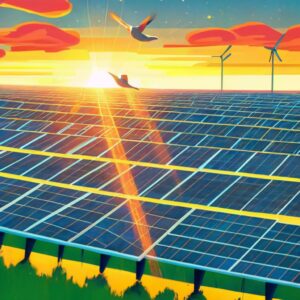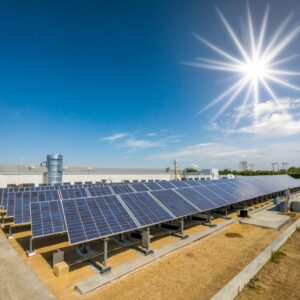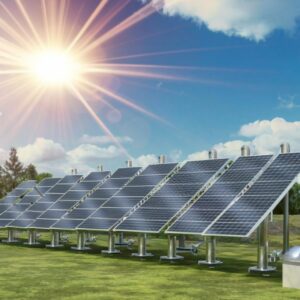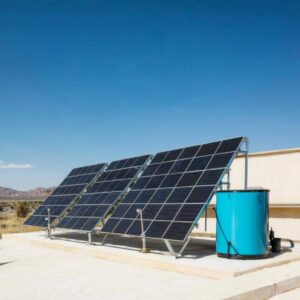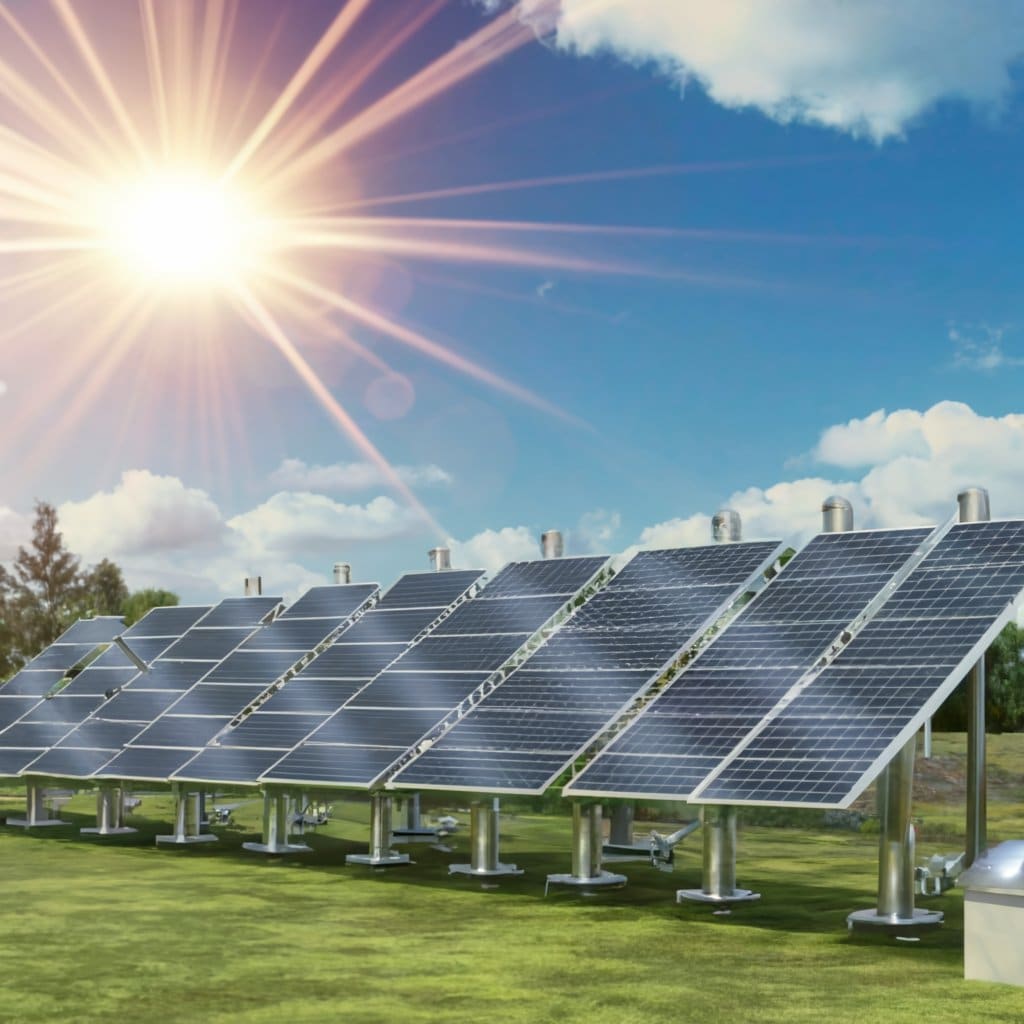
solar energy basics
Solar energy has become one of the most accessible and promising forms of renewable energy worldwide. As concerns over climate change and fossil fuel depletion rise, understanding solar energy basics is crucial for anyone looking to adopt sustainable practices or gain insight into this rapidly growing field. In this guide, we’ll explore the key aspects of solar energy, from its basic principles to its environmental benefits, installation options, and more.
What is Solar Energy?
Solar energy is power derived from the sun’s radiation. This energy is harnessed using various technologies, most commonly photovoltaic (PV) cells that convert sunlight directly into electricity. Here, we break down the basics to help you understand how solar power works and why it’s essential for the future of energy.
Photovoltaic Cells
Photovoltaic cells, also known as solar cells, are the primary components of solar panels. They absorb sunlight and generate an electric current through the photovoltaic effect.
- How PV Cells Work: When sunlight strikes a PV cell, it excites electrons within the cell’s material, typically silicon. This movement of electrons generates a flow of electricity, which can be used to power homes, businesses, and other systems.
Solar Panels
A solar panel is a collection of PV cells assembled to maximize electricity generation. These panels can vary in size and efficiency.
- Types of Solar Panels: There are three main types of solar panels—monocrystalline, polycrystalline, and thin-film. Each type has unique characteristics in terms of efficiency, cost, and installation options.
Benefits of Solar Energy
Investing in solar energy provides numerous benefits, both environmentally and financially.
Environmental Benefits
Using solar energy reduces dependence on fossil fuels, which in turn decreases greenhouse gas emissions.
- Lower Carbon Footprint: Solar power is a clean, renewable source of energy that produces no direct emissions.
- Reduced Air and Water Pollution: Unlike coal or natural gas, solar energy doesn’t rely on combustion, so it doesn’t produce harmful pollutants.
Economic Benefits
Solar energy can be a significant cost-saver over time.
- Energy Independence: Solar panels can provide energy security by reducing reliance on the grid.
- Financial Savings: While the initial investment may be high, solar power systems can significantly reduce electricity bills in the long run.
Technological Advancements
With continuous advancements, solar technology is becoming more efficient, affordable, and accessible to individuals and businesses alike.
- Energy Storage: Battery storage options allow for power usage even when the sun isn’t shining, further expanding the utility of solar energy.
How Solar Panels are Installed
The installation process for solar panels requires careful planning and professional expertise.
Site Assessment
A site assessment determines the best position and angle for optimal sunlight exposure.
- Roof Condition: The state of your roof matters, as it must be able to support the weight of the solar panels.
Permitting and Approvals
Local regulations may require permits for solar installations. Check with local authorities or solar providers to understand any legal requirements.
- Utility Approval: If connected to the grid, you may need approval from the local utility company to operate a solar system.
Installation Process
Once approved, the installation process typically includes mounting the panels and setting up electrical components.
- Inverters: Inverters convert the DC (Direct Current) generated by solar panels into AC (Alternating Current) for use in homes and businesses.
Types of Solar Energy Systems
Understanding the different types of solar energy systems can help you choose the right one for your needs.
Grid-Tied Solar Systems
Grid-tied systems are connected to the local power grid and rely on it for backup power.
- Net Metering: This allows users to earn credit for excess power fed back to the grid, which can lower electricity costs.
Off-Grid Solar Systems
Off-grid systems are not connected to the grid and require battery storage for continuous power.
- Battery Backup: Essential for off-grid setups, batteries store energy for nighttime or cloudy days.
Hybrid Solar Systems
Hybrid systems combine grid-tied and off-grid systems, using batteries to store excess power.
- Greater Flexibility: Hybrid systems allow users to draw power from both the grid and their solar setup as needed.
Factors Affecting Solar Panel Efficiency
Several factors impact the efficiency and performance of solar panels.
Angle and Orientation
The angle and direction of your solar panels play a critical role in capturing sunlight effectively.
- Ideal Positioning: In the Northern Hemisphere, south-facing panels tend to yield the best results.
Weather Conditions
Cloudy days reduce sunlight exposure, but modern solar panels are designed to capture indirect sunlight as well.
- Temperature: Solar panels are more efficient in cooler temperatures, making them suitable even for colder climates.
Maintenance
Proper maintenance ensures that solar panels continue operating at peak efficiency.
- Cleaning: Dust and debris can hinder sunlight absorption, so regular cleaning is essential for optimal performance.
FAQ: Solar Energy Basics
Q: What is the basic principle behind solar energy?
A: Solar energy is based on capturing sunlight and converting it into electricity using photovoltaic cells in solar panels.
Q: How long do solar panels last?
A: Most solar panels have a lifespan of 25-30 years, though their efficiency may decrease slightly over time.
Q: Can I use solar energy at night?
A: Solar panels don’t produce energy at night. However, battery storage systems can store excess power generated during the day for nighttime use.
Q: Is solar energy worth the investment?
A: Yes, in the long run, solar energy often provides significant savings on electricity bills and increases energy independence.
Q: How does weather affect solar energy production?
A: Solar panels can still generate electricity on cloudy days, though output may be reduced. Temperature also impacts efficiency, with cooler weather often being more optimal.
Q: Are there government incentives for installing solar panels?
A: Many regions offer tax credits, rebates, or other incentives to encourage solar installations. Check local regulations for available programs.
Q: What is net metering, and how does it work?
A: Net metering allows solar panel owners to receive credit for excess energy sent back to the grid, potentially lowering their overall electricity costs.
Q: How much maintenance do solar panels require?
A: Solar panels are generally low-maintenance but should be cleaned periodically to ensure maximum efficiency.
Q: Can solar panels be installed on any type of roof?
A: Solar panels are compatible with most roof types, though the installation process may vary depending on the material and condition of the roof.
Q: What are the main types of solar energy systems?
A: The main types are grid-tied, off-grid, and hybrid systems, each with different benefits and requirements based on individual energy needs.

